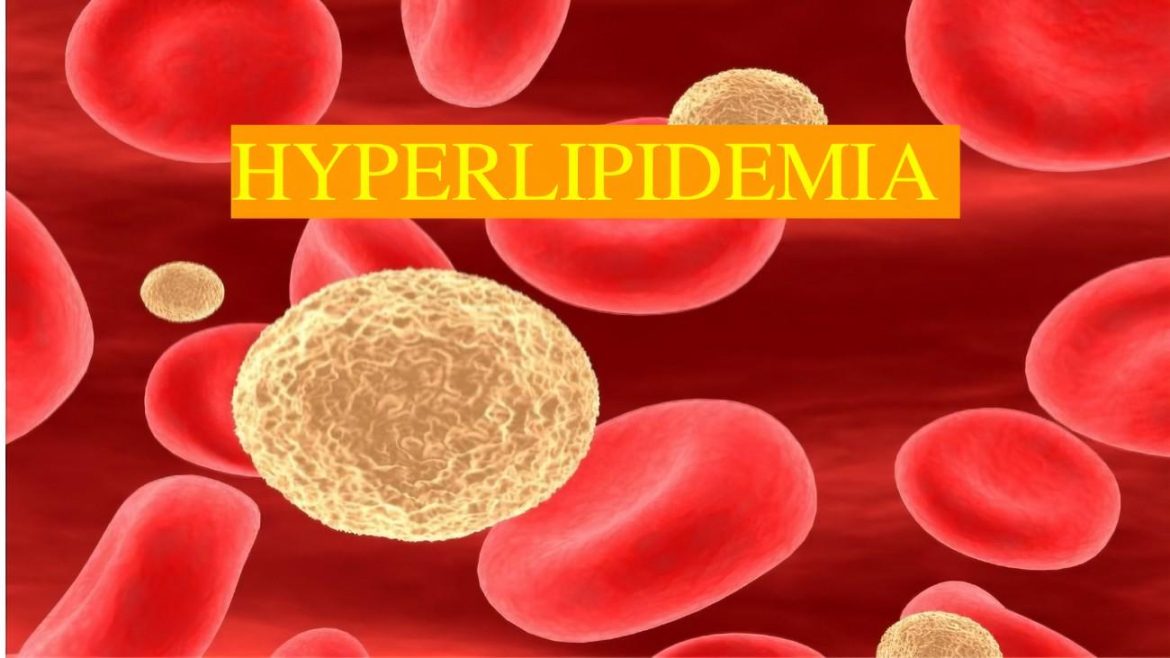Hyperlipidemia, a condition characterized by elevated levels of lipids (fats) in the blood, remains a significant health concern worldwide. This condition is a major risk factor for cardiovascular diseases, including heart attack, stroke, and peripheral artery disease. As we move into 2024, advancements in medical research and treatment options continue to evolve, providing new hope for effective management and prevention of hyperlipidemia.
Types of Hyperlipidemia
Primary Hyperlipidemia: This form is often inherited and is due to genetic factors that affect lipid metabolism.
Secondary Hyperlipidemia: This type is caused by lifestyle factors such as diet, obesity, lack of exercise, and certain medical conditions like diabetes and hypothyroidism.
SEE ALSO: What Is The Best Green Tea to Lower Cholesterol
Causes And Risk Factors
Several factors contribute to the development of hyperlipidemia:
Genetics: Family history plays a crucial role in an individual’s risk.
Diet: High intake of saturated fats, trans fats, and cholesterol can elevate lipid levels.
Lifestyle: Sedentary lifestyle, smoking, and excessive alcohol consumption are significant contributors.
Medical Conditions: Diabetes, hypothyroidism, and kidney disease can influence lipid levels.
Age and Gender: Risk increases with age and is generally higher in men compared to pre-menopausal women.
Symptoms And Diagnosis
Hyperlipidemia often has no symptoms until it leads to significant cardiovascular events. Therefore, regular screening is vital, especially for individuals with risk factors. Diagnosis is typically made through blood tests that measure total cholesterol, LDL cholesterol, HDL cholesterol, and triglycerides.
Treatment Options in 2024
Lifestyle Modifications
The first line of treatment for hyperlipidemia involves lifestyle changes:
Diet: Emphasis on a heart-healthy diet that includes plenty of fruits, vegetables, whole grains, and lean proteins. The Mediterranean diet and the DASH diet are particularly recommended.
Exercise: Regular physical activity, such as brisk walking, cycling, or swimming, helps improve lipid profiles.
Weight Management: Achieving and maintaining a healthy weight can significantly lower lipid levels.
Smoking Cessation: Quitting smoking improves HDL cholesterol levels and overall heart health.
Medications
When lifestyle modifications are insufficient, medication may be prescribed. Several classes of drugs are used to treat hyperlipidemia:
Statins: The most commonly prescribed drugs that reduce LDL cholesterol and have proven benefits in reducing cardiovascular events.
PCSK9 Inhibitors: These are newer medications that significantly lower LDL cholesterol levels, especially in individuals with familial hypercholesterolemia.
Bile Acid Sequestrants: These drugs help lower cholesterol by binding to bile acids, which the body then excretes.
Ezetimibe: Works by reducing the absorption of cholesterol in the intestines.
Advanced Therapies
Innovations in medical research have introduced advanced therapies for hyperlipidemia:
Gene Therapy: Experimental treatments aiming to correct genetic mutations responsible for hyperlipidemia.
Lipid Apheresis: A procedure similar to dialysis that filters excess lipids from the blood, used in severe cases.
RNA-based Therapies: Drugs like inclisiran, which use RNA interference to reduce the production of proteins involved in lipid metabolism.
Which Experts Can Treat Hyperlipidemia in 2024?
Primary Care Physicians
Primary care physicians (PCPs) are often the first point of contact for patients with hyperlipidemia. They can conduct initial screenings, provide lifestyle modification guidance, and prescribe medications.
PCPs play a crucial role in ongoing management and monitoring of the condition.
Cardiologists
Cardiologists specialize in diagnosing and treating heart and vascular conditions, including hyperlipidemia. They are particularly important for patients with a history of cardiovascular events or those at high risk.
Cardiologists can offer advanced diagnostic tools and treatments, including specialized medications and procedures.
Endocrinologists
Endocrinologists focus on hormonal and metabolic disorders, including hyperlipidemia, especially when it is related to conditions like diabetes and thyroid disorders. They are adept at managing complex cases where lipid abnormalities are intertwined with other endocrine issues.
Lipidologists
Lipidologists are specialists with advanced training in lipid disorders. They provide expert care for patients with severe or refractory hyperlipidemia, often utilizing cutting-edge treatments and participating in research studies.
Dietitians and Nutritionists
Dietitians and nutritionists are essential for the dietary management of hyperlipidemia. They can develop personalized eating plans that help lower lipid levels and provide ongoing nutritional support and education.
Genetic Counselors
For individuals with familial hyperlipidemia, genetic counselors provide valuable insights into the genetic aspects of the condition. They can guide patients through genetic testing and offer counseling on the implications for family members.
Nurse Practitioners and Physician Assistants
Nurse practitioners (NPs) and physician assistants (PAs) often work alongside physicians to manage hyperlipidemia. They can provide patient education, prescribe medications, and monitor treatment progress.
Prevention And Future Directions
Prevention Strategies
Preventing hyperlipidemia involves adopting a heart-healthy lifestyle from an early age. Key strategies include:
Healthy Eating: Emphasizing whole, unprocessed foods and limiting saturated and trans fats.
Regular Exercise: Engaging in moderate to vigorous physical activity for at least 150 minutes per week.
Weight Management: Maintaining a healthy weight through balanced diet and exercise.
Avoiding Tobacco: Not smoking and avoiding exposure to secondhand smoke.
Limiting Alcohol: Keeping alcohol consumption within recommended limits.
Conclusion
Hyperlipidemia remains a critical public health issue as we progress into 2024. Understanding the condition, its causes, and the latest treatment options is essential for effective management. With a multidisciplinary approach involving various healthcare experts, patients can achieve better outcomes and reduce their risk of cardiovascular diseases. Regular screenings, lifestyle modifications, and advancements in medical treatments offer hope for a healthier future for individuals with hyperlipidemia.


